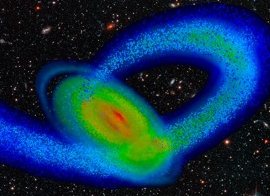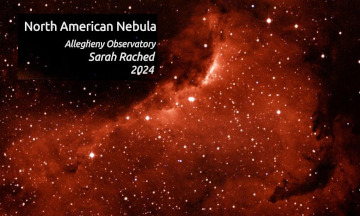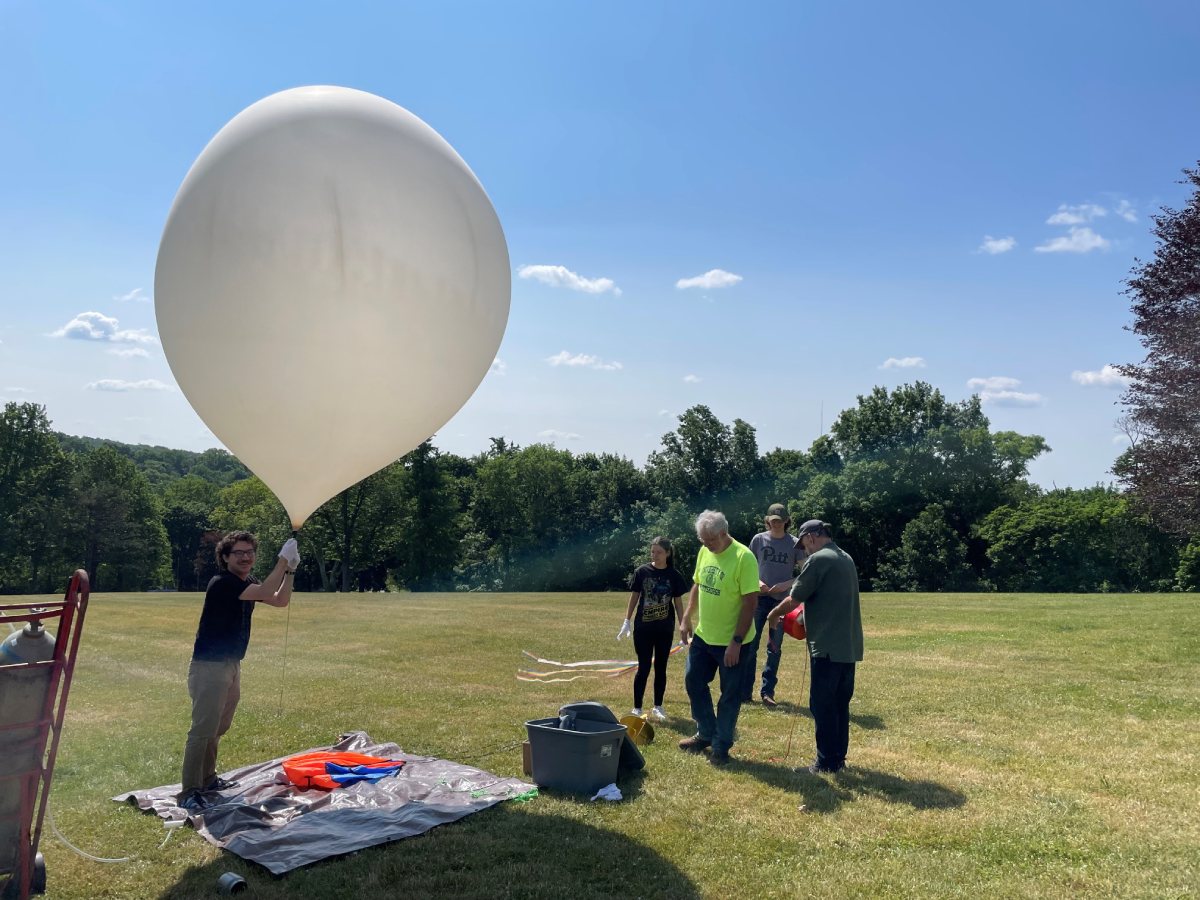 The Allegheny Observatory is part of the University of Pittsburgh's Department of Physics and Astronomy. The Astrophysics and Cosmology group researches a wide range of observable and theoretical phenomena, with current emphasis on the early origins of the Universe (e.g., through observational and theoretical studies of the Cosmic Microwave Background, as well as theoretical studies of inflation), the nature of dark matter and gravity (e.g., through both observational and theoretical investigations, including gravitational lensing studies), the nature of dark energy (e.g., through cosmology-inspired supernovae standard candle observations), black holes (e.g., through studies of the central regions of quasars, active galaxies, and massive galaxies), studies of the redshift evolution of galaxies (e.g., through direct imaging and spectroscopy) and cosmologically distributed gas that partakes in the feedback cycle that leads to the formation of galaxies and the chemical enrichment of the Universe (e.g., through quasar absorption-line studies of galactic, circumgalactic, and intergalactic gas), studies of stellar evolution (e.g., especially observational and theoretical investigations of massive stars, supernovae, and the pathways that lead to stellar explosions), and observations of transiting exoplanets. The PITTsburgh Particle physics, Astrophysics, and Cosmology Center (PITT PACC) at the University of Pittsburgh coordinates and enhances local activities in experimental, observational, and theoretical particle physics, astrophysics, and cosmology."
The Allegheny Observatory is part of the University of Pittsburgh's Department of Physics and Astronomy. The Astrophysics and Cosmology group researches a wide range of observable and theoretical phenomena, with current emphasis on the early origins of the Universe (e.g., through observational and theoretical studies of the Cosmic Microwave Background, as well as theoretical studies of inflation), the nature of dark matter and gravity (e.g., through both observational and theoretical investigations, including gravitational lensing studies), the nature of dark energy (e.g., through cosmology-inspired supernovae standard candle observations), black holes (e.g., through studies of the central regions of quasars, active galaxies, and massive galaxies), studies of the redshift evolution of galaxies (e.g., through direct imaging and spectroscopy) and cosmologically distributed gas that partakes in the feedback cycle that leads to the formation of galaxies and the chemical enrichment of the Universe (e.g., through quasar absorption-line studies of galactic, circumgalactic, and intergalactic gas), studies of stellar evolution (e.g., especially observational and theoretical investigations of massive stars, supernovae, and the pathways that lead to stellar explosions), and observations of transiting exoplanets. The PITTsburgh Particle physics, Astrophysics, and Cosmology Center (PITT PACC) at the University of Pittsburgh coordinates and enhances local activities in experimental, observational, and theoretical particle physics, astrophysics, and cosmology."
A major undergraduate research program is STEPUP. The Survey of Transiting Extrasolar Planets at the University of Pittsburgh, consists of a team of undergraduate students under the guidance of Professor Michael Wood-Vasey that detect exoplanets using the Allegheny Observatory’s 24" Keeler telescope.
 The Allegheny Observers is a high school club based at the observatory. The club members do projects with the Keeler 24" reflector, go on field trips, and share their love of science with younger children through a variety of outreach programming. To join or for more information, please contact allegheny-observatory@pitt.edu.
The Allegheny Observers is a high school club based at the observatory. The club members do projects with the Keeler 24" reflector, go on field trips, and share their love of science with younger children through a variety of outreach programming. To join or for more information, please contact allegheny-observatory@pitt.edu.

An eclipse-ballooning project to study shadow bands during the 2023 annular eclipse and 2024 total eclipse is led by Professors David Turnshek and Russel Clark. It is part of the Nationwide Eclipse Ballooning Project and involves many undergraduate students.
